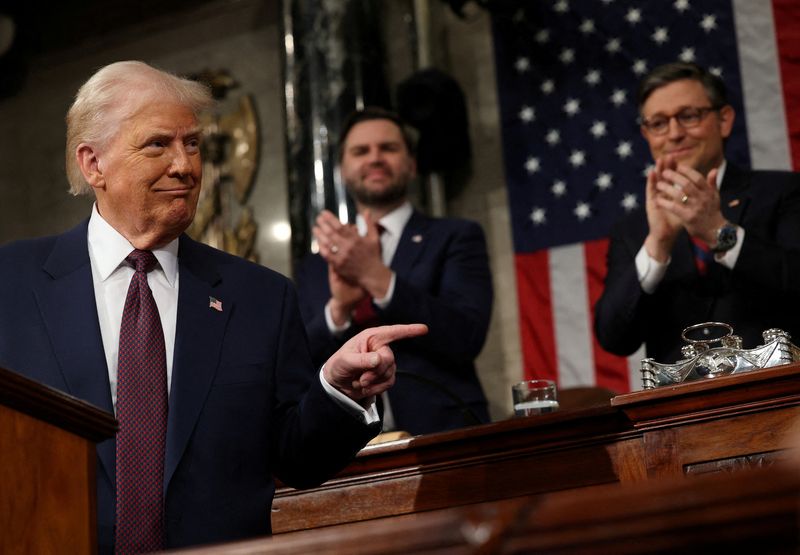By Nupur Anand and Lananh Nguyen
NEW YORK (Reuters) -U.S. regulators are pulling back on some bank exams and the use of confidential disciplinary notices, a sign lenders are already benefiting from a softer touch under President Donald Trump‘s administration, said more than half a dozen industry executives.
In recent months, the Office of the Comptroller of the Currency, the Federal Reserve, and the Consumer Financial Protection Bureau have postponed, scaled back or canceled bank exams. The new, lighter approach mostly applies to non-core banking issues, such as reputational risk, climate change risk, and diversity and inclusion, the people said.
Supervisors are also limiting the scope of exams — including some related to critical banking issues — by using more specific language at the outset to explain what they will assess and sticking more closely to examination rulebooks, three of the people said.
They are also taking a softer approach when instructing banks to fix problems, four sources said. Officials have long issued formal disciplinary letters known as “matters requiring attention” or “matters requiring immediate attention” warning banks to urgently address issues. Banks have complained the notices are frequently overly aggressive, both in number and tone.
Supervisors have begun leaning less on those official notices in favor of less formal communications aimed at steering banks to correct problems, the people said.
The changes are part of a broader effort by Trump’s regulators to focus supervision on key financial metrics that measure lenders’ safety and soundness, the seven sources said, although in some cases staff crunches caused by layoffs and a government hiring freeze have also forced regulators to pull back on exams, they said.
The people, who declined to be identified because supervision is confidential, said they mostly had knowledge of supervisory changes at big and mid-sized banks.
Democrats and many regulatory experts argue robust supervision should take a holistic view of bank risks. They also point out that supervisory failures were partly responsible for the collapse of three lenders in 2023. As a result, regulators began ratcheting up supervision later that year, Reuters reported at the time.
While Trump-appointed officials have pledged to overhaul supervision, which they say has drifted too far from core financial risk management, the process is confidential and officials have not released many details. The changes, which Reuters is reporting for the first time, shed more light on how that shake-up is quickly unfolding and lightening the load for lenders.
Story continues
